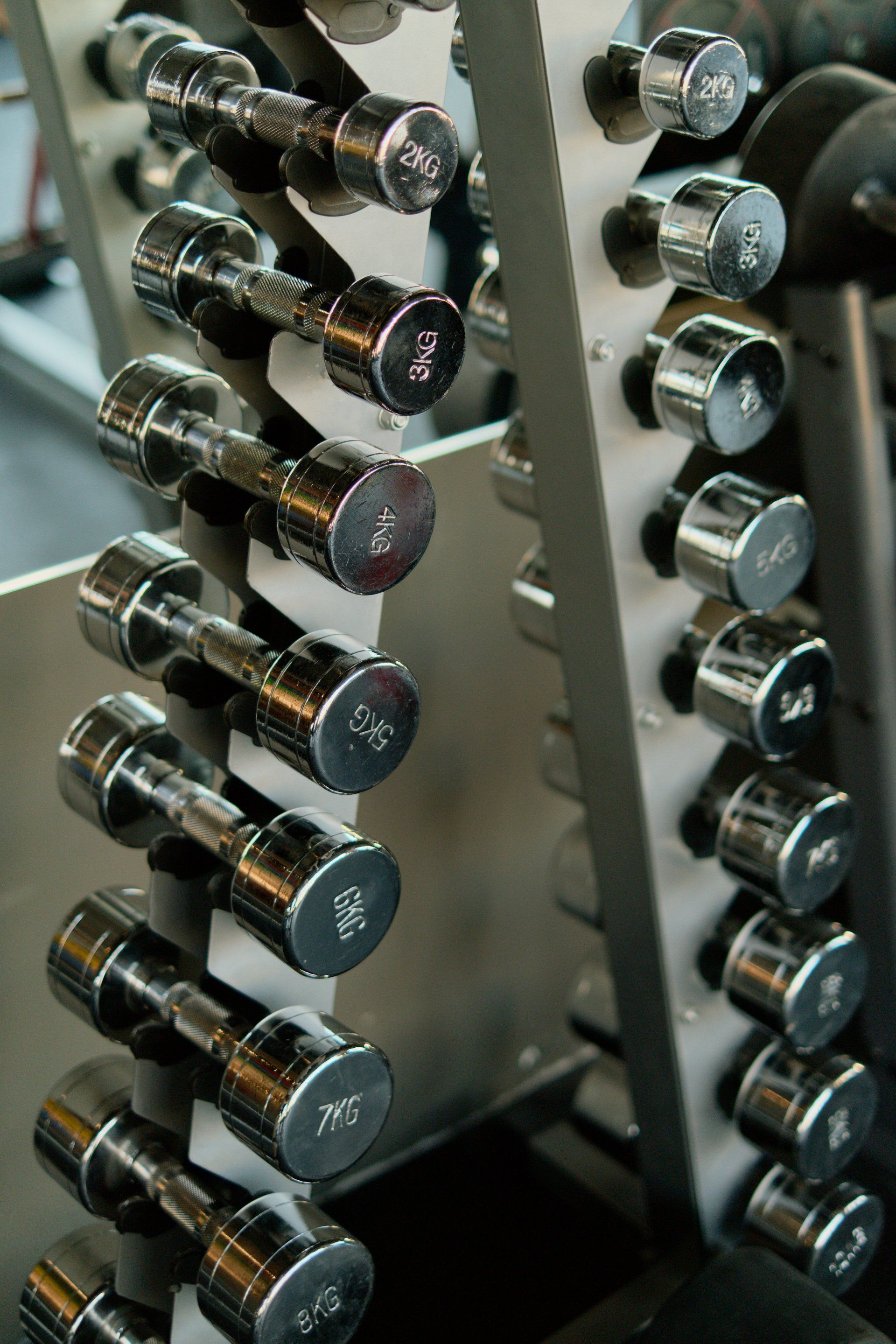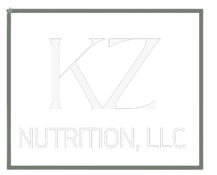October 31, 2025
Author: Kamryn Hilton, RD, LD Published: October 31st, 2025 What is the Carnivore Diet? Highly restrictive diet approaches, such as the carnivore diet have gained popularity over the years for their perceived benefits on weight loss and other areas of health and wellness. The purpose of this article is to present what we know (and what we don’t know) about the carnivore diet to better inform you about this trend in the world of health and wellness. A Little History on Carnivore The origins of the carnivore diet date back centuries ago. In the late 1700s, a Scottish doctor by the name of John Rollo used a meat-only diet on two of his diabetic patients to successfully lower their blood sugar (1). In 1856, a German writer named Bernard Moncriff wrote "The Philosophy of the Stomach”; or an “Exclusively Animal Diet is the Most Wholesome and Fit for Men”, claiming that men should live exclusively on an animal-only diet (based on his personal experience) (4). Then, in the early 20th century, arctic explorer Vilhjalmur Stefansson adopted an all-meat diet (including caribou, seals, walruses, whales, seabirds, and fish) while living with the Inuit (5). He documented improvements in his own health and a lack of chronic disease, which was then shared and popularized by other researchers later on. The carnivore diet started gaining popularity around 2018, when an orthopedic surgeon, Dr. Shawn Baker started promoting it on podcasts, including Joe Rogan’s. He claimed certain benefits including weight loss and improved overall health, based on anecdotal experience, which caught many people's attention. Carnivore Diet Basics The carnivore diet is based exclusively on animal products - beef, poultry, seafood, eggs, and some dairy. It excludes all plant foods, like fruit, vegetables, whole grains, and legumes. It goes beyond a standard low-carbohydrate or ketogenic diet, which may include non-starchy vegetables, nuts, and seeds. While there are no universal parameters for macronutrient proportions, the carnivore diet typically ranges between 60–80% calories from fat and 20–40% calories from protein, with the remaining carbohydrate intake usually being below 5% of total calories (1). This is quite different from the Acceptable Macronutrient Distribution Range according to The Dietary Guidelines for Americans, which are: 45-65% carbohydrates, 10-35% protein, and 20-35% fat. What Does the Research Say About the Carnivore Diet? There is a lack of scientific evidence on the long-term effects of following the carnivore diet, but here’s what current studies are showing. Potential Benefits Of the Carnivore Diet A 2020 survey gathered responses from 2,029 adults who reported following the carnivore diet for at least 14 months. Based on those responses, 95% of those following the diet reported improvements in overall health (2). Some specific areas of improvement include insulin resistance, cognition, cravings, and weight. While notable improvements in a variety of health conditions were reported in this study, it is important to keep in mind the limitations of self-reporting. Self-reported data leaves a lot of room for flaws in the data due to factors like social desirability bias, recall bias, and question misunderstanding. If you keep up with trends in the health and wellness world, you know that there’s a lot of hype around protein. This definitely isn’t a bad thing considering the fact that many Americans do not eat enough lean protein, and that protein is essential for muscle growth and maintenance, tissue repair, immune support, and hormone and enzyme production. Since the carnivore diet is all animal foods, it is naturally higher in protein. A notable fact about protein is it takes longer for your body to break down and digest, meaning that it keeps you fuller longer. The satiating effect of a high protein diet can lead to a decrease in overall calorie intake, eventually leading to weight loss. The carnivore diet is also high in certain key micronutrients, such as iron and B-vitamins. Iron is an essential mineral responsible for transporting oxygen to the bloodstream. The B-vitamin complex is crucial for metabolism and energy production. Deficiencies in these nutrients can lead to fatigue and other complications. This may explain an improvement in energy reported by some people while on carnivore, especially if their previous dietary patterns were lacking in those nutrients. In the 2020 survey mentioned above, we don’t know what those individuals’ nutrition habits looked like before going carnivore. It is possible that many of these people had very poor diets to begin with, and certain health improvements can often be expected when someone makes a dramatic shift from a diet containing mostly ultra-processed foods, to a diet that contains mostly whole, natural foods. Areas of Concern A few main areas of concern when it comes to the carnivore diet are nutrient deficiencies, heart health, and digestive health. Nutrient Deficiencies Following any extremely restrictive diet does present the risk for developing nutrition deficiencies. Nutrients of concern while following the carnivore diet include: Vitamin C, Potassium, Magnesium, and Fiber. When it comes to the carnivore diet, vitamin C is interesting to discuss. Vitamin C is a powerful antioxidant, essential for a strong immune system, and can be found in a variety of fruits and vegetables. While ther e are tiny amounts of vitamin C that may be found in certain meats, particularly organ meats, animal sources simply do not provide adequate amounts for human needs. Not to mention, vitamin C is easily destroyed with cooking, and I definitely don’t recommend eating raw liver to meet your daily vitamin C needs. Scurvy is a vitamin C deficiency disease characterized by fatigue, bleeding gums, loose teeth, and skin lesions. While it is possible for someone following an all-meat diet to develop this disease, it is not very common among carnivores. This may be prevented through eating organ meats and through vitamin C supplementation. Magnesium plays an important role in a variety of physiological functions, including energy production, muscle and nerve function, and blood pressure regulation. Potassium also plays a role in blood pressure regulation and muscle and nerve function, along with electrolyte balance, kidney function, and bone health. They are most abundant in a variety of plant-based foods. While you can get some amount of these nutrients through some animal-based foods, it is very difficult to consume enough each day through animal foods alone. Heart Health The topic of the carnivore diet and cardiovascular health remains controversial. Several studies have suggested that higher meat consumption is associated with increased risk for cardiovascular disease (6). It is important to note that most of these studies are observational studies. This means they find correlations, but can’t prove any causation, like a randomized control trial could. Many people experience elevations in LDL cholesterol when consuming a carnivore diet due to its high amount of animal fats (saturated fat) (2). Saturated fat has been frowned upon in the health/medical world for its potential in increasing LDL cholesterol and inflammation, leading to health consequences like cardiovascular disease and stroke. However, there is some controversy around saturated fats as newer research is suggesting some potential benefits. For instance, an observational study done in 2020 concluded that saturated fatty acids may lead to less cognitive decline (7). For decades, LDL cholesterol has been known as the “bad” cholesterol that increases the risk of atherosclerosis and cardiovascular disease. What’s interesting is one 2018 study has come out to say that the idea of cholesterol causing cardiovascular disease is supported by fraudulent reviews of literature (8). In conclusion to all of the controversy around fat and cholesterol, I think it is best to not focus so much on one single nutrient, but focus on balance, variety, and overall diet quality. Gut Health Fiber is a key nutrient that supports digestive health. Numerous studies have confirmed that increased fiber intake is associated with a decreased risk of colon cancer. Fiber also helps produce short-chain fatty acids in the gut microbiome, like butyrate (3). These fatty acids are essential for metabolic health, immune function, and enhancing your gut barrier (i.e. preventing leaky gut ). Following a carnivore diet typically leads to a decrease in butyrate due to a decrease in fiber fermentation (1). While it is true that you can get butyrate from dietary sources like butter, parmesan cheese, and goat cheese, your body’s primary source for butyrate is through the fermentation of indigestible carbohydrates, such as cellulose and resistant starch. Despite the decrease in fiber intake, some people claim that their digestion is either the same, or even better, while following the carnivore diet. There are some theories out there regarding microbiome adaptation, meaning your gut’s ability to change its microbial community based on certain external factors, like diet. It’s important to keep in mind that just because you have a daily bowel movement, does not mean that the trillions of microorganisms in your gut are functioning optimally. Overall, more randomized control trials are needed to understand the relationship between meat intake and the gut microbiota. Should I Try the Carnivore Diet? Going carnivore definitely does NOT mean eating a bunch of highly processed or fried meats and cheeses and expecting good results. IF you choose to follow a carnivore diet, you should focus on high-quality animal foods, such as grass-fed finished beef, organ meats, pasture-raised eggs, wild-caught salmon, sardines (canned in water or olive oil), organic dairy, etc. Keep in mind that supplementation (Vitamin C, Magnesium, Potassium, etc.) may be necessary as well. Who Might Benefit From the Carnivore Diet. As mentioned earlier, an all-meat diet has been medically used in the past to help resolve diabetes in some patients. In a 2020 survey, 74% of people who claimed to be on the carnivore diet self-reported their insulin resistance being resolved (2). While it is true that following a high-protein diet, low in processed carbohydrates is certainly help those trying to manage their blood sugar, it’s certainly not necessary to go as restrictive as the carnivore diet in order to manage diabetes or improve insulin sensitivity. The Ketogenic diet, similar to carnivore, has been recognized for its potential benefits in cognition. A 2024 systematic review and meta-analysis concluded that being in a state of ketosis can indeed enhance the mental state of Alzheimer’s patients (9). Another study, specifically about the carnivore diet, found that 54% of people noted improvements in cognitive conditions (2). However, this is certainly not the case for everyone. There is currently no consensus on the relationship between the carnivore diet and Alzheimer’s disease specifically. Considering the fact that a carnivore diet contains all whole foods and is high in protein (therefore keeps you fuller longer), the chances of losing weight while following this diet are fairly good. This can simply be explained by the fact that (generally speaking) the more protein you have, the more full you are, the less likely you are to over eat. Conclusion As you can tell, there are still a lot of unknowns when it comes to concerns and benefits about eating a completely animal-based diet. While many people do report experiencing benefits on the carnivore diet, there is significant lack of evidence that following the carnivore diet long-term leads to positive and sustainable health changes. Not to mention, individual responses to any diet vary due to several factors, such as current health status, gut microbiome, and genetics. Much of the evidence on the carnivore diet is anecdotal, and more large-scale studies are needed to confirm its potential benefits and/or harm. If you are going to try the carnivore diet, proceed with caution. Understand where your diet might be lacking in some areas and make sure you get all necessary nutrients your body needs by focusing on high-quality, nutrient-dense animal foods, and supplementing if needed. Trust me, I’m a big fan of animal foods (I love a good steak!) and I often recommend a variety of animal sources in your diet to assure you are getting enough high quality protein. However, there’s lots of research on plant-based foods as well, showing countless benefits to your health, so you can't go wrong with balance and variety in your diet. You also have to ask yourself a very important question - is this sustainable for me? If you don't see yourself following a certain diet long-term, it might not be worth it. Got questions? Contact Kamryn here or send an email to kamryn@nutritionbykz.com . Ready to find out what is sustainable for you? Apply for coaching here ! Sources: Goedeke, S., Murphy, T., Rush, A., & Zinn, C. (2025). Assessing the Nutrient Composition of a Carnivore Diet: A Case Study Model. Nutrients, 17(1), 140. https://doi.org/10.3390/nu17010140 Lennerz, B. S., Mey, J. T., Henn, O. H., & Ludwig, D. S. (2021). Behavioral Characteristics and Self-Reported Health Status among 2029 Adults Consuming a "Carnivore Diet". Current developments in nutrition, 5(12), nzab133. https://doi.org/10.1093/cdn/nzab133 Celiberto, F., Aloisio, A., Girardi, B., Pricci, M., Iannone, A., Russo, F., Riezzo, G., D'Attoma, B., Ierardi, E., Losurdo, G., & Di Leo, A. (2023). Fibres and Colorectal Cancer: Clinical and Molecular Evidence. International journal of molecular sciences, 24(17), 13501. https://doi.org/10.3390/ijms241713501 Animal Diet. (1856). Journal of Public Health, and Sanitary Review, 2(7), 222. Britannica Editors (2025, October 22). Northwest Passage. Encyclopedia Britannica. https://www.britannica.com/place/Northwest-Passage-trade-route Shi, W., Huang, X., Schooling, C. M., & Zhao, J. V. (2023). Red meat consumption, cardiovascular diseases, and diabetes: a systematic review and meta-analysis. European heart journal, 44(28), 2626–2635. https://doi.org/10.1093/eurheartj/ehad336 Danni Li, Jeffrey R Misialek, Ma Jing, Michael Y Tsai, John H Eckfeldt, Lyn M Steffen, David Knopman, Lisa Wruck, Rebecca Gottesman, Tom H Mosley, A Richey Sharrett, Alvaro Alonso, Plasma phospholipid very-long-chain SFAs in midlife and 20-year cognitive change in the Atherosclerosis Risk in Communities (ARIC): a cohort study, The American Journal of Clinical Nutrition, Volume 111, Issue 6, June 2020, Pages 1252–1258, https://doi.org/10.1093/ajcn/nqaa048 Ravnskov, U., de Lorgeril, M., Diamond, D. M., Hama, R., Hamazaki, T., Hammarskjöld, B., … Sundberg, R. (2018). LDL-C does not cause cardiovascular disease: a comprehensive review of the current literature. Expert Review of Clinical Pharmacology , 11 (10), 959–970. https://doi.org/10.1080/17512433.2018.1519391 Rong, L., Peng, Y., Shen, Q., Chen, K., Fang, B., & Li, W. (2024). Effects of ketogenic diet on cognitive function of patients with alzheimer’s disease: A systematic review and meta-analysis. The Journal of Nutrition, Health and Aging, 28(8), 100306. https://doi.org/10.1016/j.jnha.2024.100306



